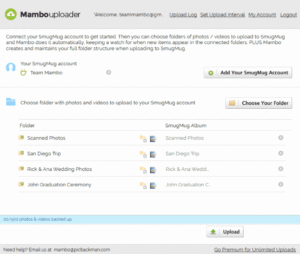-
Table of Contents
- Understanding the Importance of Backup Copies in WhatsApp
- Exploring the Differences Between Backup Copies and Local Backup in WhatsApp
- How to Create and Restore Backup Copies in WhatsApp
- The Benefits of Local Backup in WhatsApp: What You Need to Know
- Comparing Backup Options in WhatsApp: Local Backup vs. Cloud Backup
- Q&A
Differences between backup copies and local backup in WhatsApp.
WhatsApp is a popular messaging application that allows users to send text messages, make voice and video calls, and share various media files. When it comes to backing up your WhatsApp data, there are two types of backups available: backup copies and local backups. The main difference between these two is the storage location and accessibility. Backup copies are stored on cloud services like Google Drive or iCloud, while local backups are saved directly on the user’s device.
Understanding the Importance of Backup Copies in WhatsApp
WhatsApp: Understanding the Importance of Backup Copies
In today’s digital age, where our lives are increasingly intertwined with technology, it is crucial to understand the importance of backup copies. This is especially true when it comes to our communication platforms, such as WhatsApp. WhatsApp, with its billions of users worldwide, has become an integral part of our daily lives, allowing us to stay connected with friends, family, and colleagues. However, what happens if we lose our WhatsApp data? This is where backup copies come into play.
When it comes to WhatsApp, there are two types of backup copies: local backup and cloud backup. Understanding the differences between these two types is essential for ensuring the safety and security of our valuable data.
Local backup refers to the process of creating a backup copy of your WhatsApp data on your device’s internal storage or external SD card. This backup includes all your chats, media files, and settings. Local backups are created automatically by WhatsApp on a daily basis, but you can also manually create them whenever you want. These backups are stored locally on your device, which means that they are not accessible from any other device or location.
On the other hand, cloud backup refers to the process of creating a backup copy of your WhatsApp data on a cloud storage service, such as Google Drive or iCloud. Cloud backups are not created automatically by WhatsApp but can be enabled in the app’s settings. Once enabled, WhatsApp will upload your backup to the cloud storage service of your choice. The advantage of cloud backups is that they are accessible from any device with the same WhatsApp account, making it easy to restore your data when switching to a new phone or reinstalling WhatsApp.
Now that we understand the differences between local and cloud backups, let’s delve into why backup copies are so important in WhatsApp. Firstly, backup copies act as a safety net, protecting your valuable data from loss or damage. Imagine losing your phone or accidentally deleting your WhatsApp account. Without a backup copy, all your chats, photos, and videos would be gone forever. With a backup copy, however, you can easily restore your data and continue where you left off.
Secondly, backup copies provide peace of mind. Knowing that your data is safely backed up allows you to use WhatsApp without the fear of losing important information. Whether it’s sentimental conversations with loved ones or important work-related discussions, having a backup copy ensures that these valuable memories and conversations are preserved.
Lastly, backup copies enable seamless transitions between devices. In today’s fast-paced world, it is common for people to switch phones or use multiple devices. With a backup copy, you can effortlessly transfer your WhatsApp data from one device to another, ensuring that you don’t miss a beat. This is particularly useful when upgrading to a new phone or when using WhatsApp on both a smartphone and a tablet.
In conclusion, backup copies play a vital role in ensuring the safety, security, and convenience of our WhatsApp data. Whether it’s local backups stored on your device or cloud backups accessible from any device, having a backup copy gives you peace of mind and protects your valuable conversations and media files. So, take a moment to enable backups in your WhatsApp settings and rest easy knowing that your data is safe and sound.
Exploring the Differences Between Backup Copies and Local Backup in WhatsApp
WhatsApp: Exploring the Differences Between Backup Copies and Local Backup
In today’s digital age, it is essential to have a backup of our important data, including our conversations and media files. WhatsApp, being one of the most popular messaging apps worldwide, understands the importance of data backup and provides two options: backup copies and local backup. While both serve the purpose of safeguarding our data, there are significant differences between the two.
Firstly, let’s understand what backup copies are. When you enable backup copies in WhatsApp, the app automatically saves your chats and media files to your chosen cloud storage service, such as Google Drive or iCloud. This ensures that even if you lose or switch your device, you can easily restore your conversations and files on a new phone. Backup copies are stored securely in the cloud, offering an additional layer of protection against device loss or damage.
On the other hand, local backup refers to the backup files that are stored directly on your device’s internal storage or external SD card. Unlike backup copies, local backups are not automatically synced to the cloud. Instead, they are created on a regular basis, depending on your device’s settings. Local backups are useful when you want to restore your data on the same device or transfer it to a new device without relying on cloud services.
One significant difference between backup copies and local backup is the storage location. Backup copies are stored in the cloud, while local backups are stored on your device. This distinction has implications for accessibility and security. With backup copies, you can access your data from any device with WhatsApp installed and connected to the same cloud storage account. However, local backups are limited to the specific device on which they were created, making them less versatile in terms of accessibility.
Another difference lies in the frequency of backups. Backup copies are created automatically on a regular basis, depending on your chosen settings. This ensures that your data is continuously backed up, minimizing the risk of losing recent conversations or media files. In contrast, local backups are created manually or according to a predefined schedule. This means that if you forget to create a local backup or your device malfunctions before the scheduled backup, you may lose some recent data.
Furthermore, backup copies offer an additional layer of security compared to local backups. Cloud storage services typically employ advanced encryption techniques to protect your data from unauthorized access. This means that even if your device is compromised, your backup copies remain secure. On the other hand, local backups are only as secure as your device’s security measures. If someone gains physical access to your device, they may be able to access your local backup files.
In conclusion, both backup copies and local backup in WhatsApp serve the purpose of safeguarding your data. However, they differ in terms of storage location, accessibility, frequency, and security. Backup copies are stored in the cloud, accessible from any device, and created automatically on a regular basis. Local backups, on the other hand, are stored on your device, accessible only on the same device, and created manually or according to a predefined schedule. While backup copies offer greater accessibility and security, local backups provide more control over your data. Ultimately, the choice between the two depends on your individual needs and preferences.
How to Create and Restore Backup Copies in WhatsApp
WhatsApp: What Are the Differences Between Backup Copies and Local Backup
In today’s digital age, it is essential to have a backup of our important data, including our conversations on messaging apps like WhatsApp. WhatsApp provides two options for creating backups: backup copies and local backup. While both serve the purpose of safeguarding our data, there are some key differences between the two.
Firstly, let’s understand what backup copies are. When you create a backup copy in WhatsApp, it saves your chat history, media files, and settings to your cloud storage, such as Google Drive or iCloud. This means that even if you lose or change your device, you can easily restore your data by simply logging into your WhatsApp account and downloading the backup copy from the cloud. Backup copies are convenient because they allow you to access your data from any device with an internet connection.
On the other hand, local backup refers to the backup files that are stored directly on your device’s internal storage or external SD card. Unlike backup copies, local backups are not stored in the cloud. Instead, they are saved locally on your device, making them accessible only on that particular device. Local backups are useful when you want to transfer your WhatsApp data from one device to another without using cloud storage. For example, if you are upgrading to a new phone, you can create a local backup on your old device and then transfer it to your new device using a USB cable or an SD card.
One significant difference between backup copies and local backups is the storage capacity. Backup copies are stored in your cloud storage, which typically offers a larger storage capacity compared to your device’s internal storage or SD card. This means that you can store more data in backup copies than in local backups. However, it’s important to note that cloud storage may have limitations based on your subscription plan or the available space on your cloud account.
Another difference lies in the accessibility of the backups. As mentioned earlier, backup copies can be accessed from any device with an internet connection. This means that even if you lose your device or it gets damaged, you can still retrieve your data by logging into your WhatsApp account on a new device. On the other hand, local backups are device-specific, meaning they can only be accessed on the device where they were created. If you lose or damage your device without having a backup copy, you may lose your WhatsApp data permanently.
Furthermore, the process of creating and restoring backups also differs between backup copies and local backups. Creating a backup copy is relatively straightforward. You can set up automatic backups in your WhatsApp settings, specifying the frequency and the cloud storage service you want to use. Restoring a backup copy is equally simple, as WhatsApp prompts you to restore your data when you install the app on a new device or reinstall it on your existing device.
In contrast, creating a local backup requires manual intervention. You need to navigate to the WhatsApp settings and initiate the backup process. Similarly, restoring a local backup involves manually transferring the backup file to your new device and then using the WhatsApp restore function to retrieve your data.
In conclusion, both backup copies and local backups serve the purpose of safeguarding your WhatsApp data. Backup copies are stored in the cloud, accessible from any device with an internet connection, and offer larger storage capacity. Local backups, on the other hand, are stored locally on your device, making them device-specific and useful for transferring data between devices without using cloud storage. Understanding the differences between these two options will help you choose the most suitable method for creating and restoring backups in WhatsApp.
The Benefits of Local Backup in WhatsApp: What You Need to Know
WhatsApp: What are the Differences Between Backup Copies and Local Backup
In today’s digital age, it is essential to have a backup of our important data, including our conversations on messaging apps like WhatsApp. WhatsApp offers two options for backing up your data: backup copies and local backup. While both serve the purpose of safeguarding your data, there are some key differences between the two. In this article, we will explore the benefits of local backup in WhatsApp and what you need to know about it.
Firstly, let’s understand what backup copies are in WhatsApp. When you enable backup copies, WhatsApp automatically saves a copy of your chats and media files to your cloud storage, such as Google Drive or iCloud. This ensures that even if you lose or change your device, you can easily restore your conversations on a new device. Backup copies are convenient as they allow you to access your data from anywhere, as long as you have an internet connection. However, there are some limitations to backup copies.
One of the main limitations of backup copies is that they are stored on external servers, which means you are dependent on the availability and reliability of these servers. If the server experiences any issues or downtime, you may not be able to access your backup. Additionally, backup copies are susceptible to security breaches, as they are stored on third-party servers. While WhatsApp takes measures to protect your data, there is always a risk of unauthorized access.
This is where local backup comes into play. Local backup refers to the process of saving your WhatsApp data directly to your device’s internal storage or an external SD card. Unlike backup copies, local backup provides you with complete control over your data. You don’t have to rely on external servers or worry about security breaches. Your data is stored locally, making it easily accessible even without an internet connection.
Another advantage of local backup is that it allows you to have multiple copies of your data. You can manually create backups at any time, ensuring that you have the most up-to-date version of your conversations. This is particularly useful if you frequently switch devices or want to keep a separate backup for archival purposes. With local backup, you have the flexibility to choose when and where to store your data.
However, it is important to note that local backup has its limitations as well. Unlike backup copies, local backups are not automatically synced to the cloud. This means that if you lose or damage your device, you may lose your local backup as well. It is crucial to regularly transfer your local backup to a secure location, such as a computer or an external hard drive, to avoid any potential data loss.
In conclusion, both backup copies and local backup serve the purpose of safeguarding your WhatsApp data. Backup copies offer convenience and accessibility from anywhere with an internet connection, while local backup provides you with control and flexibility over your data. It is recommended to use a combination of both methods to ensure the highest level of data protection. Regularly creating backup copies and transferring local backups to a secure location will help you avoid any potential data loss and give you peace of mind knowing that your conversations are safe.
Comparing Backup Options in WhatsApp: Local Backup vs. Cloud Backup
WhatsApp: what are the differences between backup copies and local backup
When it comes to backing up your WhatsApp data, you have two options: backup copies and local backup. While both options serve the purpose of safeguarding your data, there are some key differences between the two. In this article, we will compare backup copies and local backup in WhatsApp, highlighting their distinct features and benefits.
Firstly, let’s understand what backup copies are in WhatsApp. Backup copies refer to the automatic backups that WhatsApp creates on a regular basis. These backups are stored in the cloud, specifically on Google Drive for Android users and iCloud for iPhone users. The advantage of backup copies is that they are easily accessible from any device with your WhatsApp account. This means that even if you lose or change your phone, you can easily restore your chats and media files from the cloud backup.
On the other hand, local backup refers to the manual backups that you create on your device’s internal storage or external SD card. Unlike backup copies, local backups are not stored in the cloud. Instead, they are saved locally on your device, making them accessible only from that specific device. This means that if you lose or change your phone, you will not be able to restore your chats and media files from a local backup unless you have transferred the backup files to your new device.
One of the main advantages of backup copies is the convenience they offer. Since they are stored in the cloud, you don’t have to worry about manually creating backups or transferring files to a new device. The process of restoring your data is also straightforward, as WhatsApp automatically detects the backup copies and prompts you to restore them when you reinstall the app. This makes backup copies a reliable and hassle-free option for most users.
On the other hand, local backups provide a sense of control and security. Since the backups are stored locally on your device, you have complete control over them. You can choose when and where to create the backups, and you can also choose to encrypt them for added security. Local backups are particularly useful if you have limited or no internet connectivity, as you can still create and restore backups without relying on the cloud.
Another important difference between backup copies and local backups is the storage space they require. Backup copies are stored in the cloud, which means they do not consume any of your device’s internal storage. This is especially beneficial for users with limited storage capacity on their devices. On the other hand, local backups are stored on your device’s internal storage or external SD card, which means they occupy a certain amount of space. If you have limited storage, you may need to periodically delete old local backups to free up space.
In conclusion, both backup copies and local backups serve the purpose of safeguarding your WhatsApp data. Backup copies offer convenience and accessibility, as they are stored in the cloud and can be easily restored on any device. On the other hand, local backups provide control and security, as they are stored locally on your device and can be encrypted. The choice between backup copies and local backups ultimately depends on your preferences and requirements.
Q&A
1. Backup copies on WhatsApp are stored on cloud storage services like Google Drive or iCloud, while local backups are saved directly on your device’s internal storage.
2. Backup copies can be accessed and restored on different devices, while local backups are limited to the specific device they were created on.
3. Backup copies include your chat history, media files, and settings, allowing you to restore them when switching devices or reinstalling WhatsApp.
4. Local backups are typically created automatically on a daily basis, while backup copies can be manually initiated or scheduled to occur at specific intervals.
5. Backup copies are encrypted for security purposes, ensuring that your data remains protected during storage and transfer, while local backups may not have the same level of encryption.Conclusion: The main difference between backup copies and local backup in WhatsApp is that backup copies are stored on cloud services like Google Drive or iCloud, while local backups are saved directly on the user’s device. Backup copies allow users to restore their WhatsApp data on a new device or after reinstalling the app, while local backups are primarily used for transferring data between devices or restoring data on the same device.









